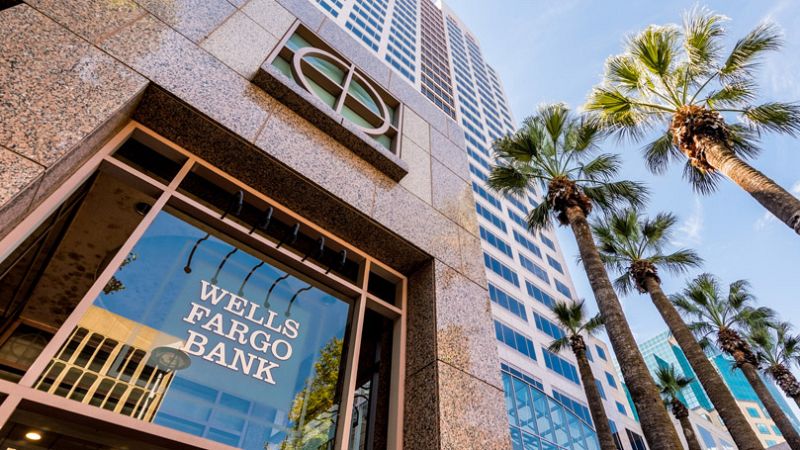
The first-quarter earnings season will kick off with big US banks, including JPMorgan Chase and Wells Fargo, later today, followed by Bank of America, Citigroup, and Morgan Stanley next week. After a turbulent week on Wall Street, results from these flagship lenders will offer critical insights into the broader economic impact of President Trump’s sweeping tariffs on business sentiment and outlooks.
Analysts expect the banks to deliver solid results for the first three months of the year, supported by a still-resilient US economy during the period. However, attention will likely shift toward forward guidance, with expectations for a more cautious tone amid rising economic uncertainties. Growth outlooks are expected to be revised downwards, a key metric for investors as they assess the longer-term effects of trade disruption.
Before the recent tariff-driven market turmoil, the banking sector had been among the stronger performers, buoyed by steady loan growth, improved liquidity conditions, and a pick-up in merger and acquisition (M&A) activity. By 19 February, shares of both JPMorgan and Wells Fargo had gained roughly 13%. However, sentiment has since reversed, with both stocks plunging more than 20% amid an escalating trade war sparked by Trump’s tariff announcements.
Tariff-driven uncertainties likely to weigh on earnings
In the wake of last week’s reciprocal tariff announcement, Morgan Stanley analyst Betsy Grasek downgraded the US banking sector from ‘attractive’ to ‘in line’. “Trade developments move our base case to a significant gross domestic product slowdown, with risk of our bear-case recession scenario rising sharply,” she wrote in a note. Grasek added that investment banking revenues are likely to be more sensitive to recession risks than traditional lending.
Dilin Wu, a research strategist at Pepperstone Australia, also noted that economic uncertainty and rising recession risks stemming from the tariff war could suppress loan demand. Wu said banks may need to “face higher credit loss provisions, which would further dampen financial performance,” adding that “the volatility in financial markets, driven by tariff-related uncertainties, will likely hinder capital market activities, negatively affecting investment banking revenues, particularly in M&A and equity issuance.”
Investor attention will likely centre on the banks’ outlooks and guidance for any signs of longer-term impact from the tariffs. “These harsh realities mean the markets will have to price in the subsequent hit to corporate profits, with the looming US reporting period—unofficially kicked off by a few US banks on Friday—to be watched closely for earnings downgrades and the revision or outright removal of guidance,” Kyle Rodda, a senior market analyst at Capital.com, wrote in an email.
Federal Reserve cautious on further rate cuts
The Federal Reserve’s interest rate path has grown more complicated as tariffs raise expectations of renewed inflationary pressures. On Thursday, Susan Collins, President of the Federal Reserve Bank of Boston, signalled that the central bank may delay further easing: “Renewed price pressures could delay further policy normalisation, as confidence is needed that the tariffs are not destabilising inflation expectations.”
Although banks typically benefit from higher interest rates through improved net interest margins, tighter policy could weigh on household spending and broader economic activity, thereby slowing loan growth. As a result, forecasts for banks’ net interest income (NII)—the difference between what they earn on loans and what they pay on deposits—are likely to be more conservative. Analysts at Bank of America expect a cautious tone from management when first-quarter results are released.
Bank earnings forecasts
Despite the looming headwinds from tariff uncertainty, bank earnings for the first quarter are expected to remain strong, with the full economic effects of the tariff increases likely to materialise later in the year.
According to consensus estimates compiled by Reuters, JPMorgan is projected to report earnings per share (EPS) of $4.61 (€4.08), representing a 3.8% increase from the same period last year. Wells Fargo’s EPS is forecast to rise 3.3% year-on-year to $1.24 (€1.1). Bank of America is expected to report EPS of $0.82 (€0.73), an 8% growth from a year earlier. Citigroup is likely to post an 18% year-on-year jump in earnings to $1.86 (€165) for the quarter. Meanwhile, Morgan Stanley is expected to report a 10% growth in EPS to $2.22(€1.97).







